How can I have been blogging for six months about places to go around Dunedin and not mentioned Mount Cargill yet? One of Dunedin’s most iconic landmarks, the 676 metre high volcanic peak can be seen from almost anywhere in the city.
 I haven’t done this walk in years (despite having done it many times when I was younger) but we figured it would be good practise for our plan to climb Mt Charles(the highest point on the peninsula) sometime in the coming weeks. We had two options: start from Bethunes Gully or take the easy way and start from Mount Cargill Rd further up the slope. I decided to chicken out and take the easy option this time.
I haven’t done this walk in years (despite having done it many times when I was younger) but we figured it would be good practise for our plan to climb Mt Charles(the highest point on the peninsula) sometime in the coming weeks. We had two options: start from Bethunes Gully or take the easy way and start from Mount Cargill Rd further up the slope. I decided to chicken out and take the easy option this time.
We drove through town and all the way up North East Valley, then followed North Rd up the hill. Some time after it became Mt Cargill Rd we found the little gravel parking nook which marked the start of our walk. We clambered out of the vehicle and up the wooden staircase into the trees.
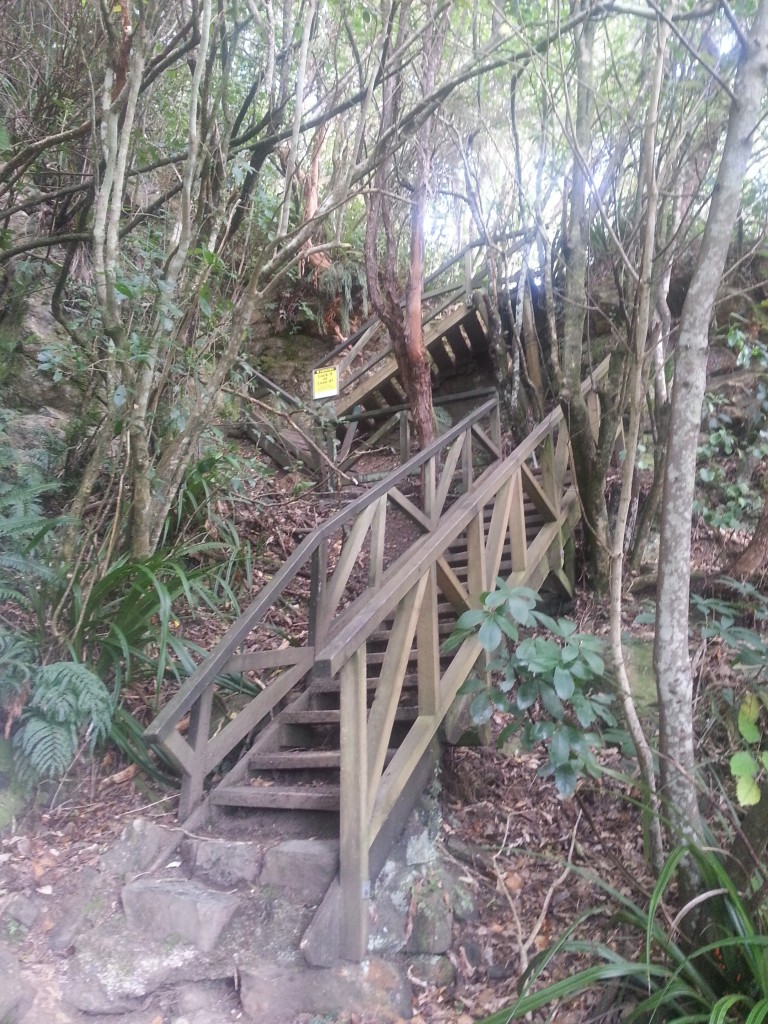
The first stage is steep and my thighs immediately started protesting. Perhaps they remembered the Wilkin and wanted to get their objection in early! But I persevered up the many stone steps, appropriately made from the local basalt columns.
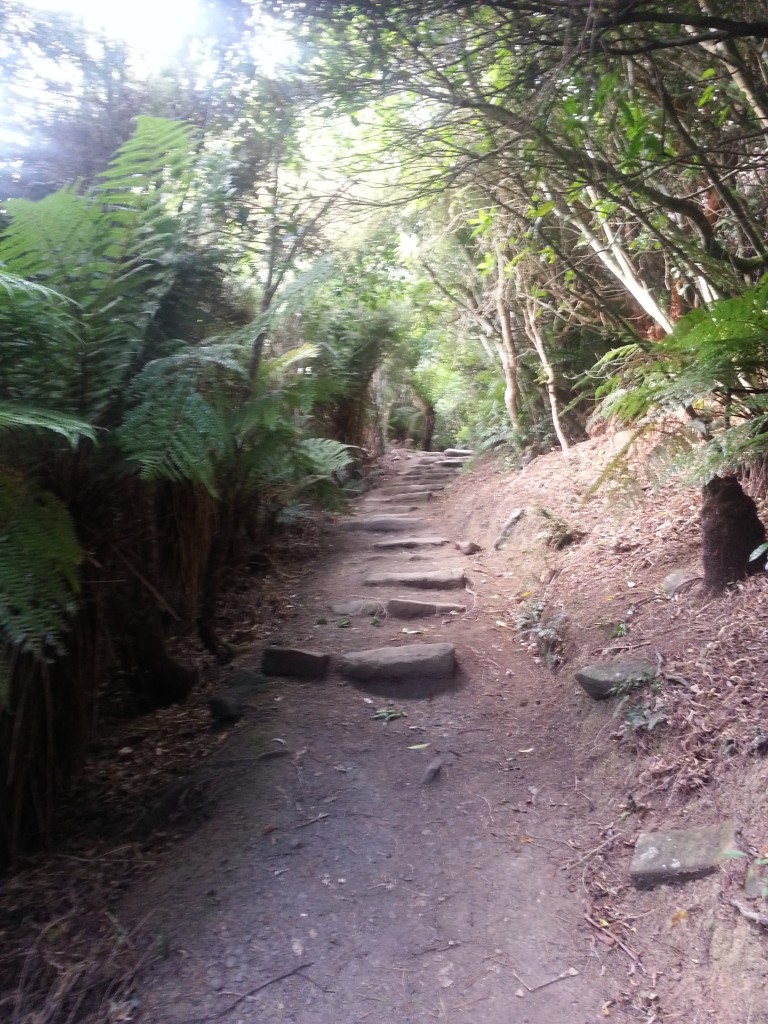
It wasn’t too long before we were rewarded with our first view (and a good excuse to rest!).
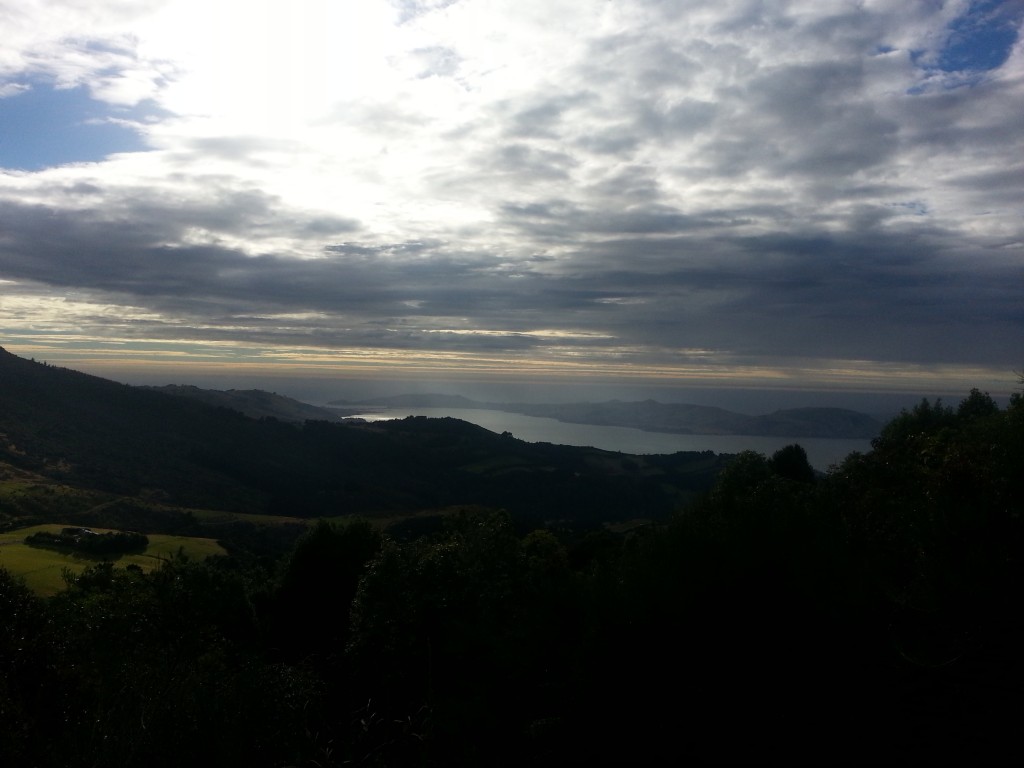
The track levelled out a bit from here and my muscles had quietened down, resigned to the fact that we were going to climb a mountain whether they liked it or not.
We skirted the lower slope of Mt Holmes, a 575 metre minor peak on the slope of this mighty mountain and home to the famous organ pipes – one of many outcrops of hexagonal columns scattered around the Dunedin area. So far in my adventures, I’ve found them at Second Beach, The Pyramids, and Cook’s Head Rock. But the organ pipes are the ultimate example as far as any Dunedin local is concerned.
Soon we passed below the site of the organ pipes, marked by the jumble of fallen pillars which had tumbled down the slope.
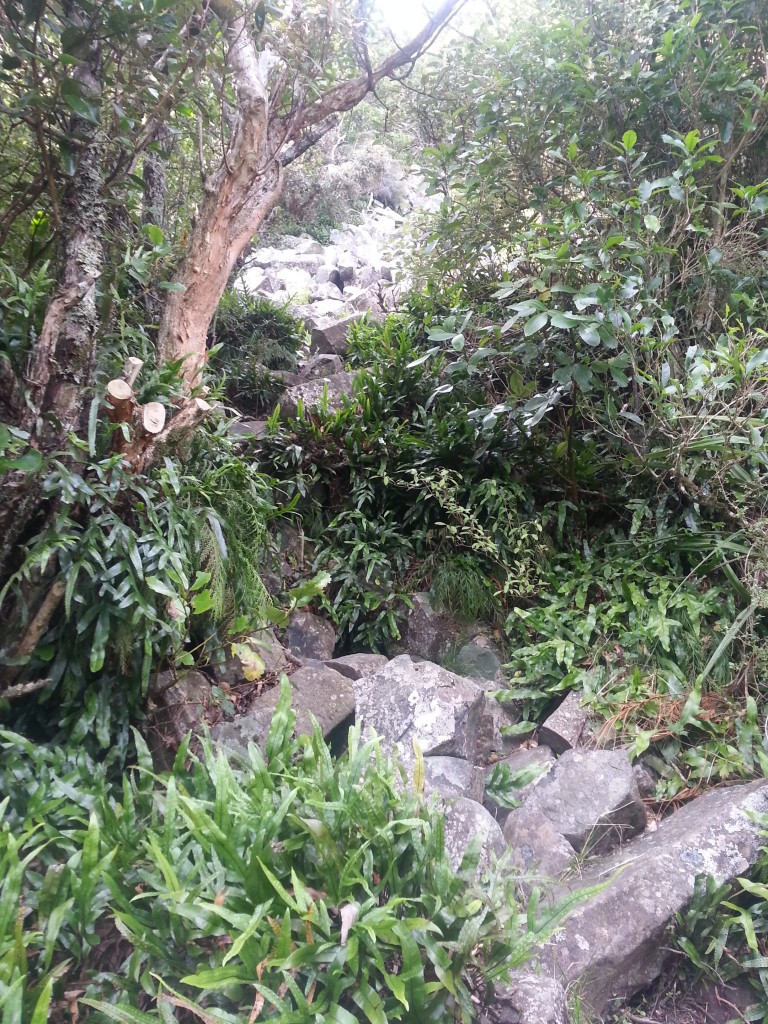
Some great examples of native flora can be observed while walking this track. I spotted a lot of horopito, also known as pepper tree, and a lovely cedar sticking up through the canopy.
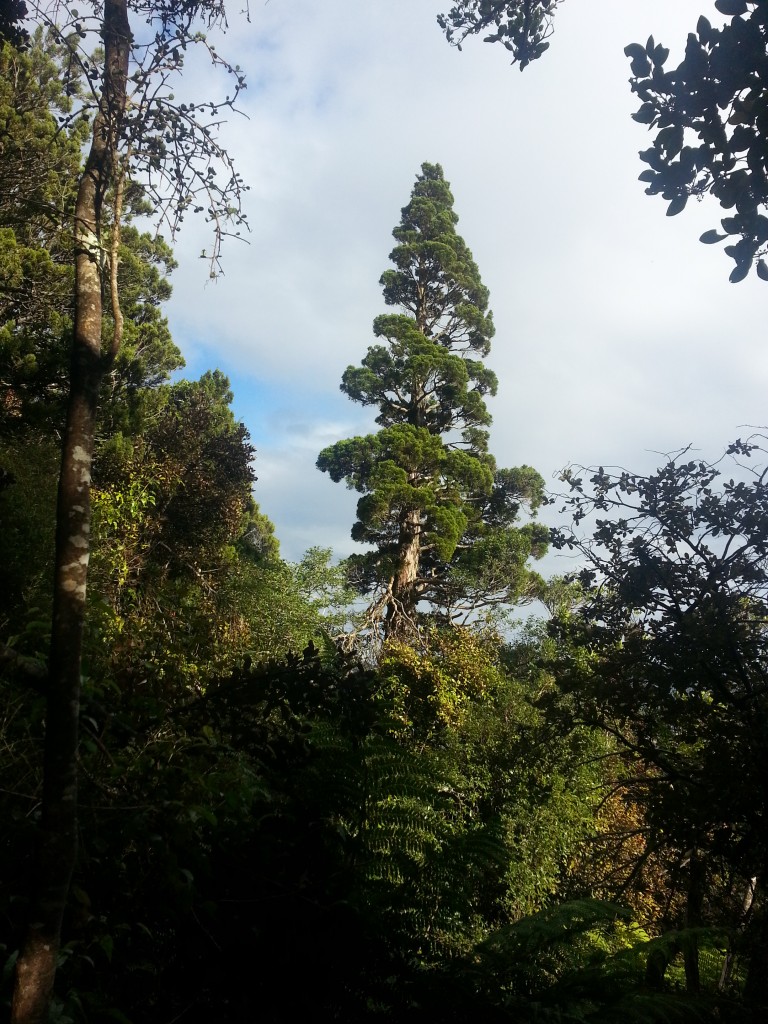
Circling round the flank of Mt Holmes, we came to the access point for the organ pipes. We carefully stepped out onto the treacherous mass of fallen pillars, from which you can see Blueskin Bay below, or the standing pipes above.
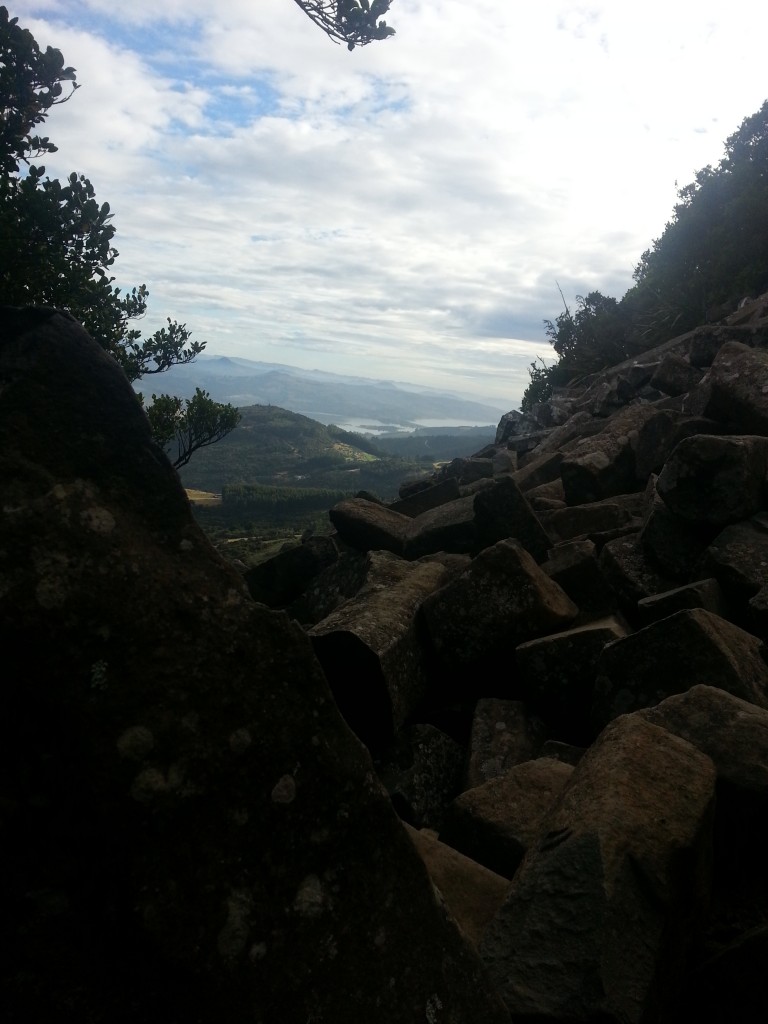
It was a good place to sit a while and admire the scenery.
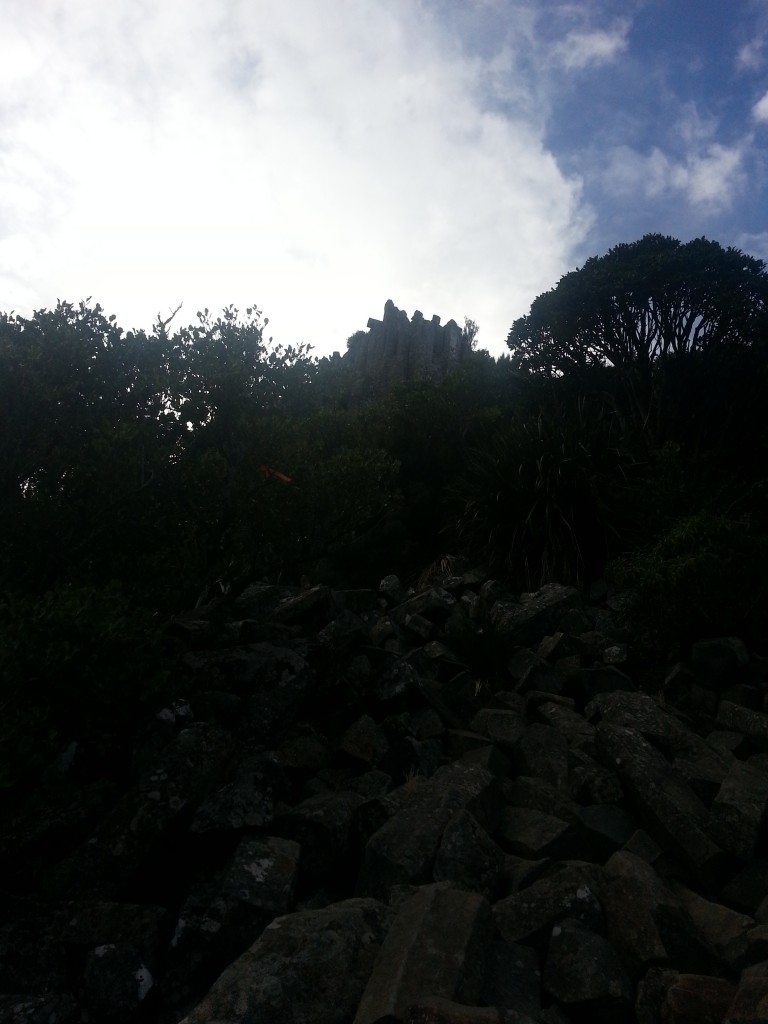
Having admired the iconic standing stones to our contentment, we continued uphill. As we climbed, the forest took on a new alpine tone, lower and denser, giving the feel of walking through a living tunnel.
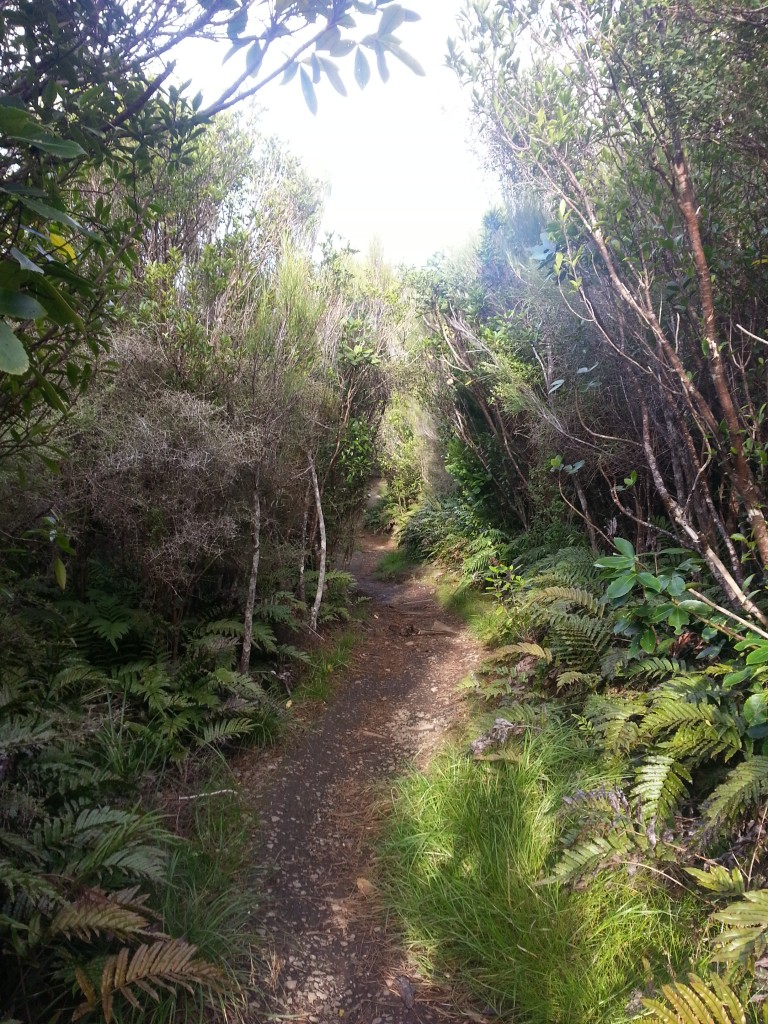
There’s new plant species to be found up here too. We found a coprosma with striking red berries, which the coprosma-identification app I downloaded (yes, there really is an app for everything these days!) suggested might be Coprosma dumosa.
There are currently 53 species of coprosma recognised in New Zealand and many are difficult to tell apart, so even with the help of modern technology I could still be wrong.
There was, however, no confusion about the other species of coprosma we encountered. The word coprosma comes from the Greek kopros (dung) and osme (smell) while foetidissima translates to “vile-smelling”. The colloquial names for Coprosma foetidissima include “stinkwood” and “shit shrub”…and I’m starting to get the feeling this plant is not very popular.
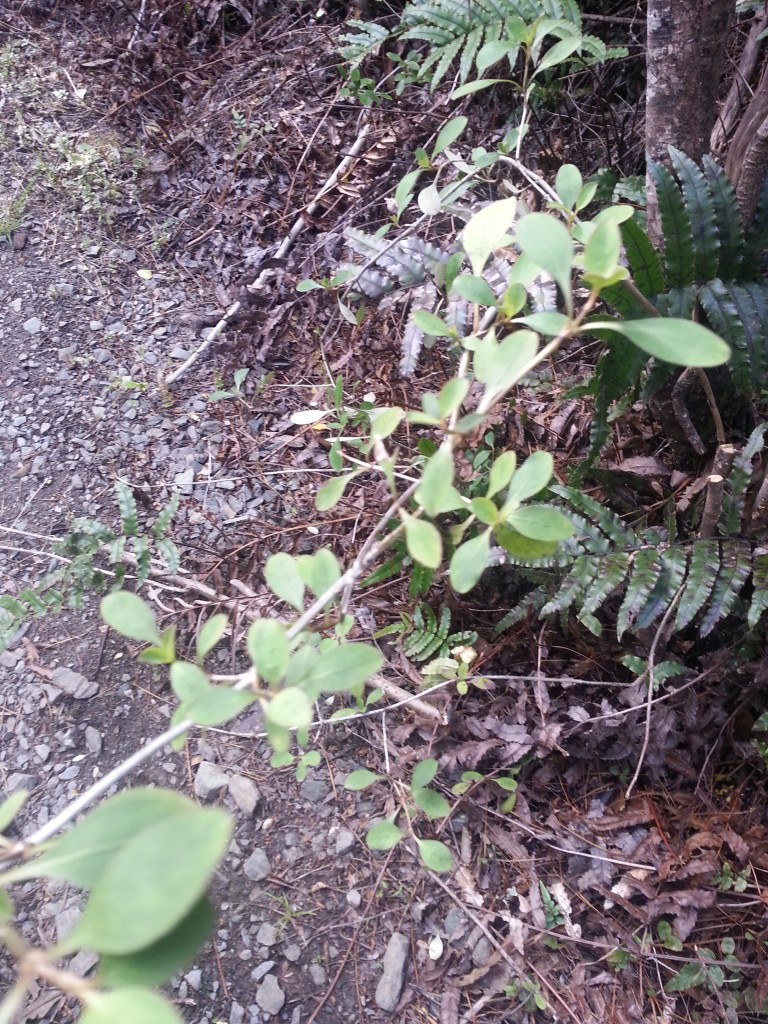
The reason for all the mean words is the foul odour the leaves will give off when crushed. Naturally, I had to get a whiff of the plant that even scientists basically call “stinky poo-smell”…and I think everyone might be overreacting just a bit. It was merely mildly unpleasant.
But forget that, because suddenly we got our first glimpse of the transmitting tower at the summit of Mt Cargill! Not far to go now. Seeing it brings back memories of a past journey up the mountain, a cold windy day, when great sheets of ice were breaking from the tower and tumbling about in the wind.
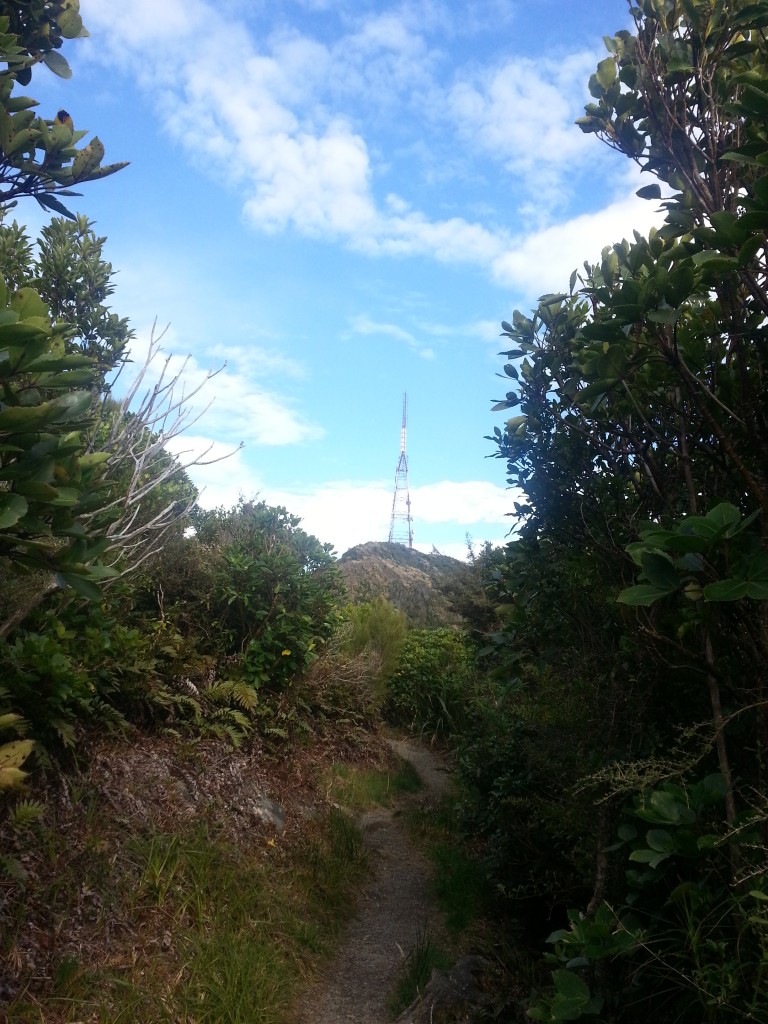
Then we came to the turn off for Buttars Peak, the distinctive lump that sits below the summit of Mt Cargill. I had to make the detour, because it’s from here that my 13-year-old self welcomed the new millennium. Unfortunately, the weather that morning had no sense of occasion, and I couldn’t see a thing through the soup of thick cloud. But technically I watched the sun rise from this peak.
I scrambled up the steep slope and up to the rocky summit. Sitting on the rocky outcrop, I was able to look over all of Dunedin and the harbour.

We headed back down and continued towards the summit of Mt Cargill. Above us loomed the tower and satellite dish, components of the transmitting station that supplies TV and radio to Dunedin.
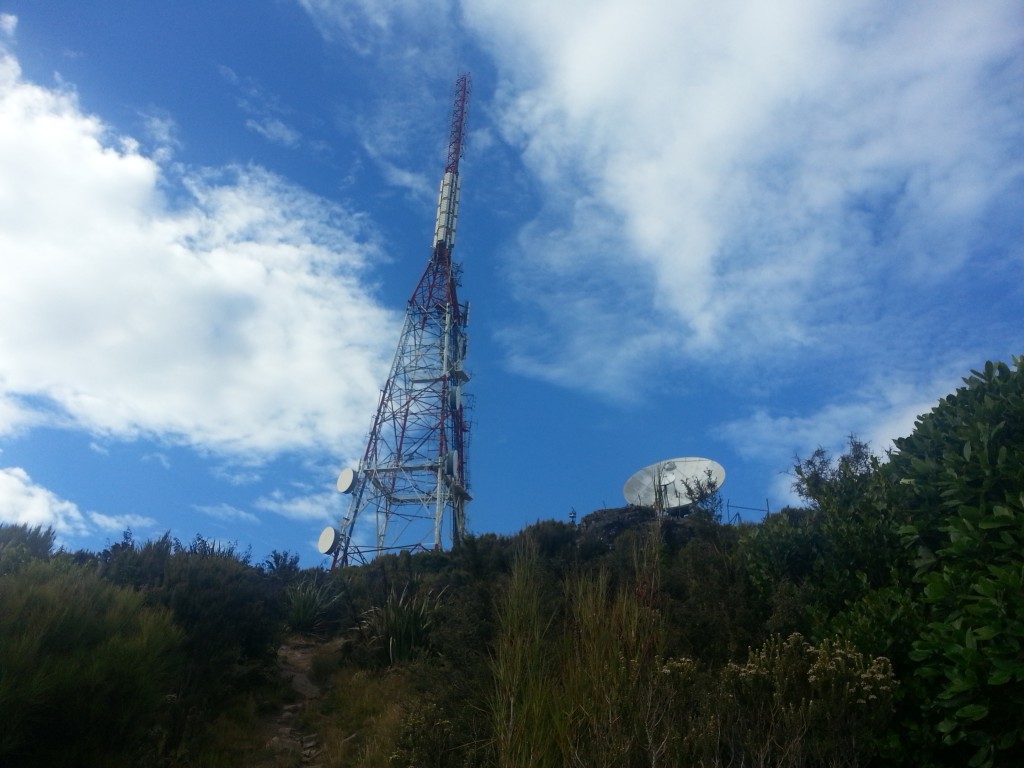
One final push and we’d made it! I stood on the lookout table to record the magnificent 180-degree view of Dunedin, the harbour, and the northern coast.

After celebrating our achievement, it was time to head back down.
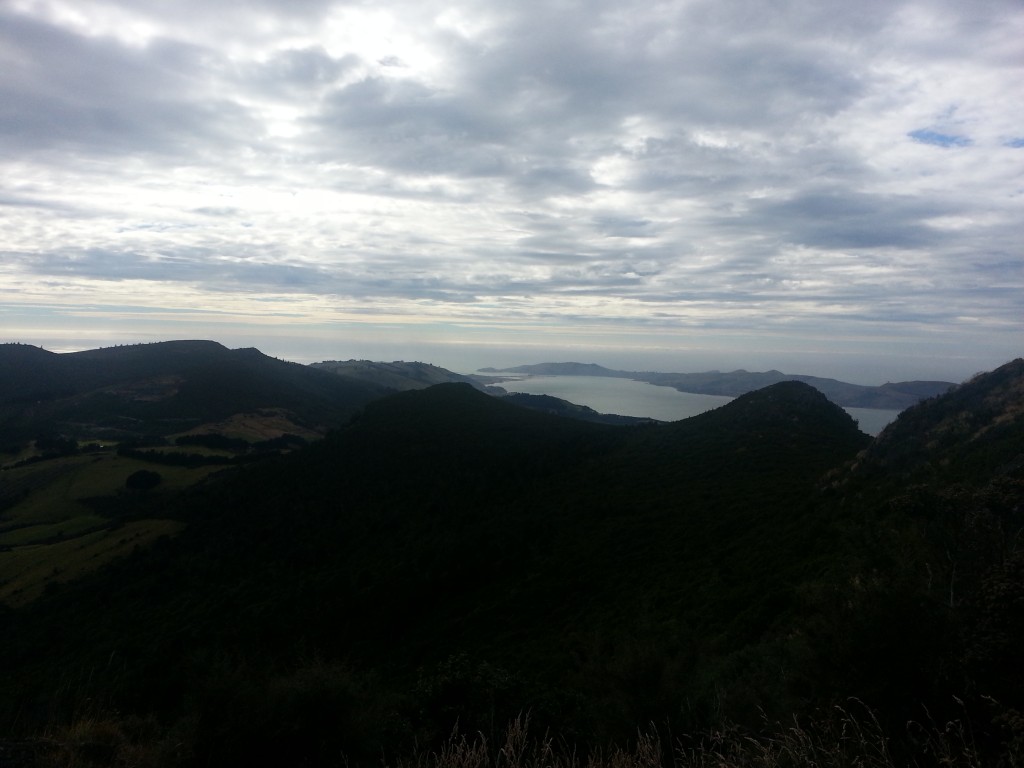
Retracing our steps, we found something we’d missed on our way up. Nestled at the edge of the track was a rare orchid.
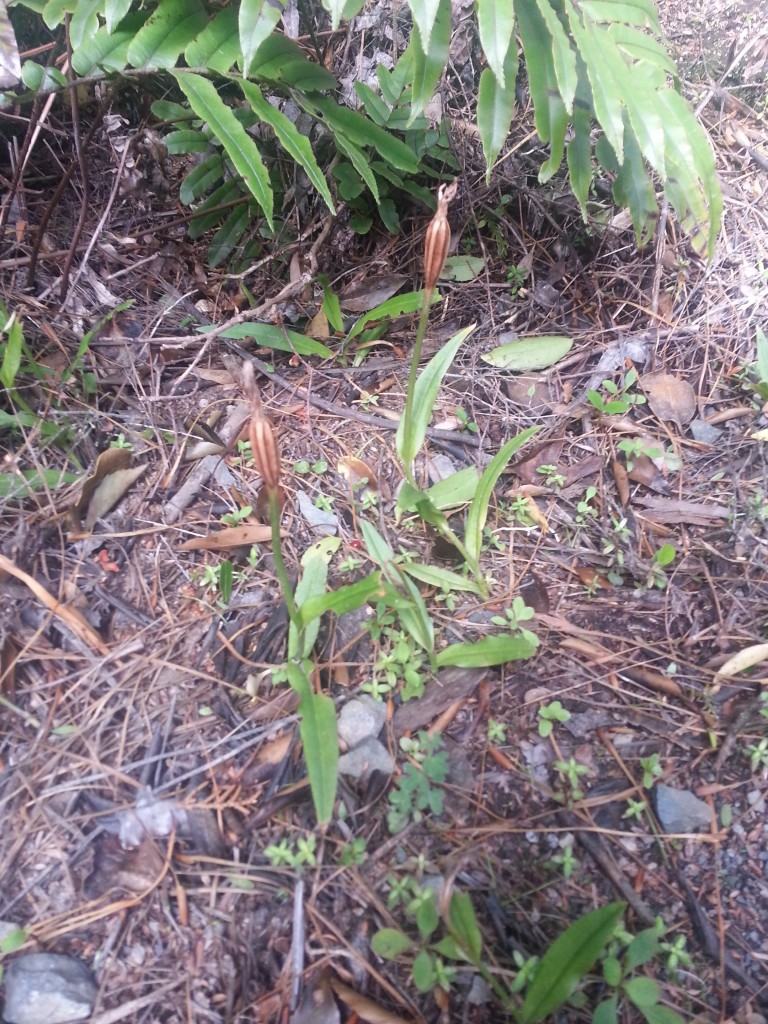
We Dunedinites are lucky to have such a scenic place so close to home, and the summit of Mt Cargill is a pilgrimage every Dunedin citizen should make at least once. What are your fond memories of this place?
References:
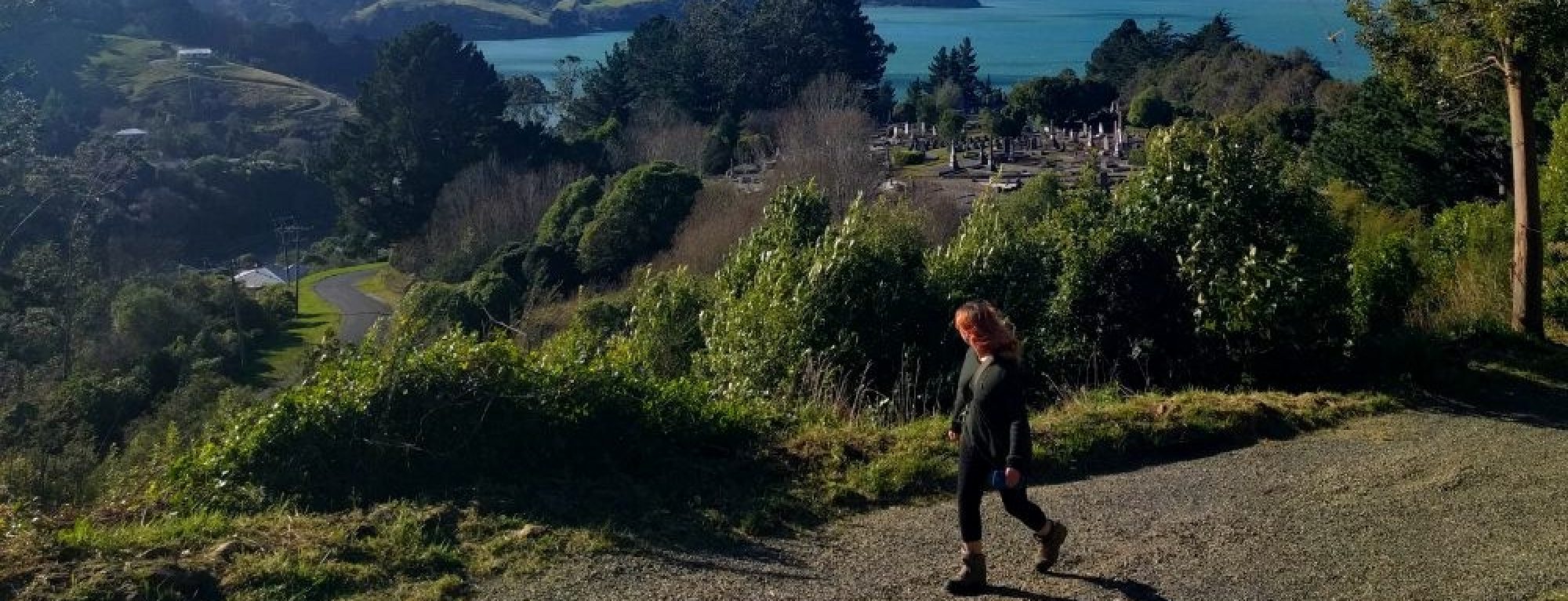
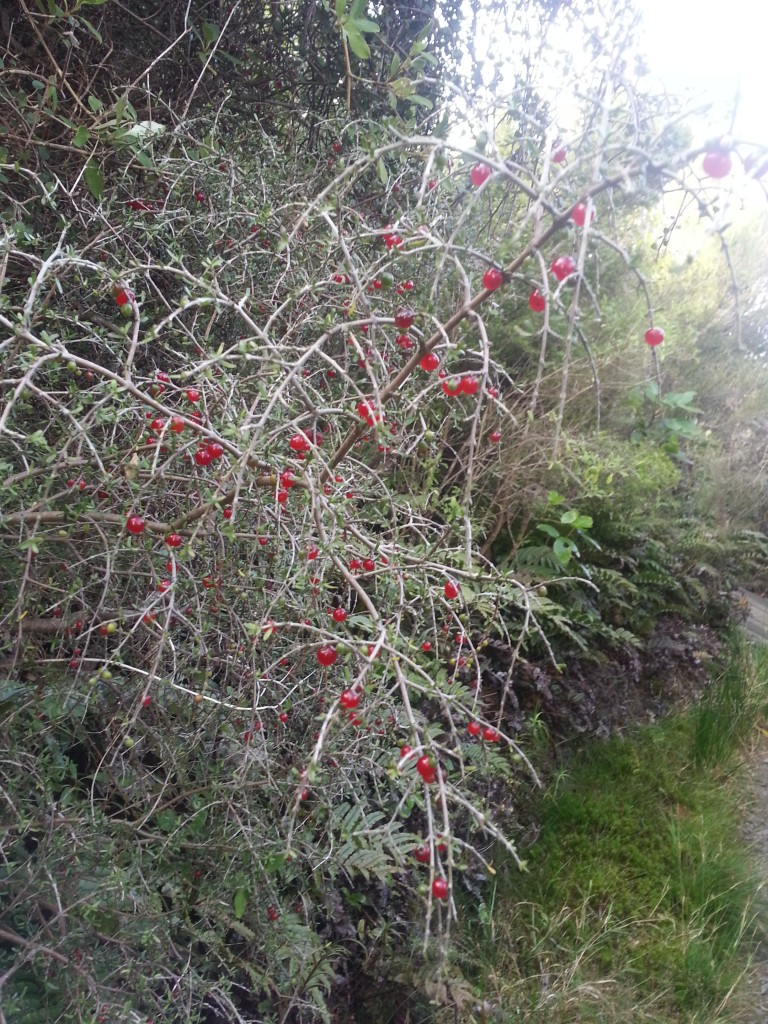
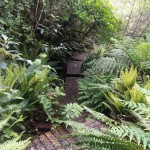
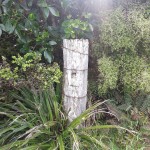
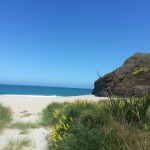
Dad says ‘Like it” he also thinks the orchid is Pterostylis, maybe Banksii…
I remember the numerous walks up MT Cargill too. The Organ pipes has always been one of my favourite places to go. I also remember the millennium new years. I was only seven so I couldn’t go with you to watch the sun rise. Mum and I stayed home and watched the fireworks at midnight. They were really pretty!
You guys may have got the better end of the bargain!
thanks. I love reading about your walks on Dunedin hills
and to see the photos; now living in France it’s great to feel
like you are really on Mount Cargill my favourite mountain
in the whole world;